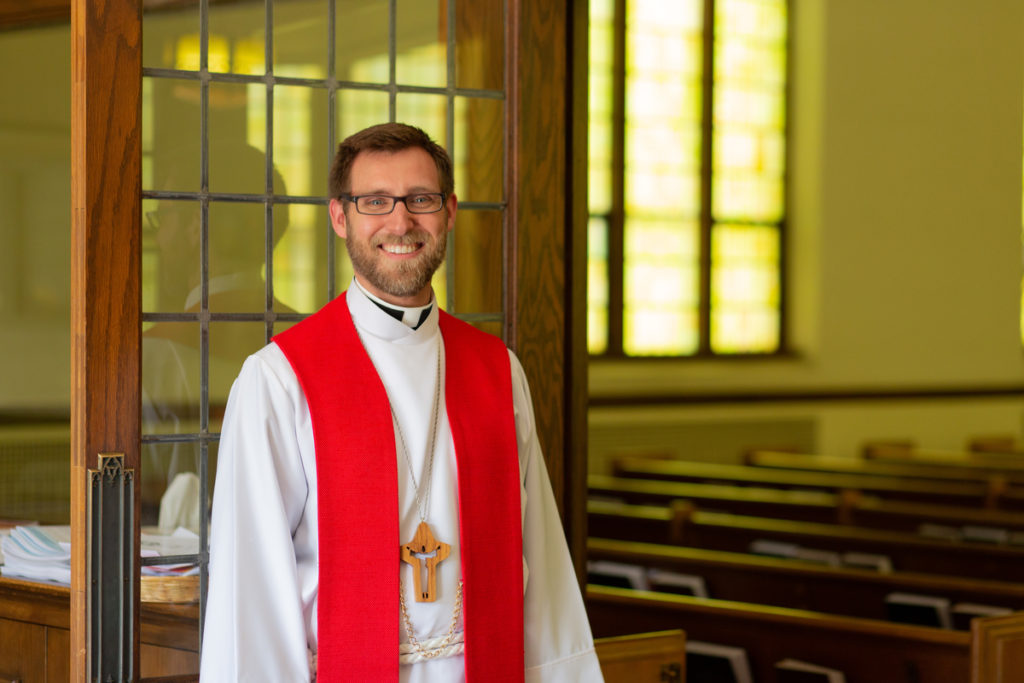Back in my college days, I was on the debate team. We would be assigned a general topic for the year, and a two-member team from one college would offer a proposal within the topic, while a team from a different college would oppose it. We didn’t know until a few minutes before the debate started whether we would be advocating the affirmative or negative side, nor did the negative team know how the affirmative would frame its proposal.
One of the tricks was to frame the proposal in terms that made it difficult to oppose. Probably we spent more planning time on that than the merits of the ideas at stake.
I have watched how those holding the revisionist position on sexual ethics have brilliantly re-framed the debate in ways that put those of us holding to traditional biblical ethics at a disadvantage in convincing others. They managed to frame the debate in such a way that any opposition to their positions seemed unjust or even sick.
This has been done in two ways. First, sexual orientations and behaviors were turned into issues of civil rights. Think how you see the = sign on bumper stickers; “All we want is the same right you have to be married to the person we love.” And since, as the argument goes, sexual orientations are not a matter of choice but perhaps even good things which God has created, gender identity and sexual orientation should be a protected civil right. So, it is stated as proven and obvious fact that sexual orientation is like race or ethnicity — a matter about which we have no choice. Even though science has failed to find a so-called “gay gene,” the statement that “we are born gay [or whatever]” has been repeated so often that it is generally accepted as true [see Orwell, the “big lie”].
I first heard this contention back in 1983 (yes I am that old) at a Conference on the New Lutheran Church at the Lutheran School of Theology at Chicago. Karen Bloomquist, who at the time served in the social affairs office of the LCA (and would later be the primary writer of the first ELCA sexuality statement, the one that went down in flames) was giving a presentation with a list of groups of people who should be protected, and included along with race, gender, and ethnic origin the matter of sexual orientation. I challenged her, and I still remember Prof. Robert Jenson sitting in the back of the room, grinning I suspect at my naïve surprise at her linking of these topics, for it had been done in the wider society long before I first heard it.
We all have sinful orientations. The Church calls it “original sin.” St. Paul speaks of it as “the flesh,” to which “the Spirit” is opposed. Not all of us are tempted in the same ways, but on other matters nobody will say, “God made me this way, so you have to celebrate it and be proud of me.” For instance, there is a proven genetic connection to addictions including alcoholism, but we would not celebrate drunkenness in an alcoholic. The ethical choice for an alcoholic is not to drink; it isn’t to go around proudly claiming, “God made me this way.”
Once we turn sexual orientations into civil rights instead of behavioral issues, we have been placed at a significant disadvantage in defending the biblical view of sexuality. And that is exactly what has happened.
A danger of seeing sexual orientations as civil rights issues is that this paves the way for the power of government, especially its power to tax, to be used against groups including churches which do not accept this new definition of justice. Already the Supreme Court has declared (I believe disastrously) that tax exemption is not a right but a privilege bestowed by the government to organizations that share its values (the case involved Bob Jones University, and a similar one involved Rev. Moon). Several prominent politicians have publicly proposed that churches which refuse to conduct same-sex marriages should be denied tax exemptions.
A second brilliant move by the sexual revisionists is even more frightening: They have basically declared that anybody who opposes their viewpoints on sexuality is mentally ill.
Think of what that term “homophobia” means: “homo” means “same” and “phobia” is fear. It is a pseudo-scientific term coined to cut off any debate about the rightness or wrongness of same-sex sexual activities. If you disapprove of same-sex sexual relationships, you are obviously homophobic, and shame on you! End of discussion.
In my state, our Secretary of Health started life as Richard but is now Rachel. And the media is trumpeting how those who make unkind statements about her are “transphobic.”
I’m not sure about you, but I don’t lie awake nights in fear that a group of transgender people are going to attack me. Nor do I wake up screaming because of a nightmare that some crazy doctor is attacking me with a knife. I guess there might be such a thing as homophobia, in the sense that a person may be insecure in their masculinity or femininity. But most of us do not go through life obsessed with fear of gay or lesbian people or inclinations. I have friends and family members who are gay or lesbian, and they are generally nice people. I just don’t agree with this aspect of their lifestyle. But then there are reasons to disapprove of a lot of things I do too (file that under the topic of original sin, even though most of my sinning isn’t all that original).
Not only does turning traditional sexual ethics into mental illness cut off any constructive conversation, but it puts us in a very vulnerable position, which is exactly the intention. Call me paranoid, but I can see that in a certain cultural climate, folks like me might be compassionately “treated” in a kind and gracious attempt to release us from our bondage to our phobias.
Let’s be clear: All gay and lesbian people, all transgender people, are precious children of God for whom Jesus died, as he died for all us sinners. They are our neighbors whom we are commanded to love as we love ourselves. All of us (including me) need to avoid unkind comments or actions toward these people.
And it is true that there is such a thing as gender dysphoria, where the brain and body fail to communicate accurately in fetal development, so that the brain thinks it is one gender while the body develops as the other. This is tragic, and Christians can and will disagree on how a person deals with this aspect of the brokenness of our fallen world. Similarly, there seem to be very complex factors in a person being attracted to a member of the same sex. I accept that persons normally don’t choose to be gay or lesbian (although today there seem to be some exceptions like Katy Perry “I kissed a girl,” who try it for kicks and to prove their open-mindedness).
What does this mean for us? For starters, I believe we need to repent of any nastiness or unkindness we practice or feel toward what are called “sexual minorities” (I won’t try to name them all). We are not called to hate anybody, and when we come across that way, we simply confirm the opinion of those who believe we have a serious prejudice or mental illness.
And on a societal basis, we need to treat all people with justice and fairness. The time is probably long past when pastors should be agents of the state in officiating at marriages. We should let the government do its thing, and if people want God’s blessing pronounced on their relationship, that would be our role where we believe we can do it with integrity.
But we need to keep reminding ourselves and others that our concern is not with orientations or inclinations but with actions. We can’t always change what we feel, but we can have some control over what we do. I am not saying that this is easy: I think of Mark Twain who said that it was easy to quit smoking; he must have done it a thousand times. And most of us can relate regarding our struggles with our particular temptations.
I am not optimistic that we can change the framework in which sexual ethics is being argued today, but we need to be aware of it and be prepared to challenge it. Once behaviors outside the boundaries of heterosexual marriage are turned into civil rights, and especially when opposition to them is defined as mental illness, we have our work cut out for us. It will require a lot of wisdom and patience to counter those assumptions (for they are assumptions, not proven facts).
And if we fail to love other sinners, we don’t deserve to win an argument either. So let us keep our focus directed toward love for all our neighbors, even as we look for opportunities to account for the hope that is in us, but always with gentleness and reverence (see 1 Peter 3:15-16).




















This discussion was extremely valuable to me. Thank you for greatly simplifying my understanding, and the dealing with a problem that to this point had been extremely difficult for me to understand and deal with (or not). I have several friends who are or have family members who include both practicing and celibate homosexuals. Most are very good and caring people. I have felt an urge to try to change these people, but have felt that it would be both inappropriate and ineffective. So I have stayed away from the topic almost entirely. Your comparison to alcoholism was very much of an eye opener to me. That is another situation that, although I was much more closely involved, left me with the same helpless feeling. Seeing where these problems have been categorized as a civil rights issues, rather than genetic or developmental issues, opens entirely different approaches to my looking at, thinking about and dealing with the issue. You have presented this in a caring and more readily understandable way. Thanks.
Thank you for this gracious response. It was my hope to help all of us better understand what has been happening. This re-definition of terms regarding sexual ethics has been going on for decades. And as we can see recently from the Netflix glorification of child pornography, the forces at work undermining all sexual ethics are far from finished.
Actually the church is more necessary now than ever in terms of making witness to sinners. Since the issues above are now confined to civil rights matters in the public arena, the church has no choice but to preach its unique message of repentance and forgiveness. Sinners as we are can either ignore God’s call to repent or listen for conviction, turn and be saved through Christ’s death on the cross. A death, btw, that is for us and for our salvation. That is why the Christian liturgy, outside the prayer offices, meets sinners head-on with confession and forgiveness each Sunday.
The civil order with its rights is going to do what it does according to the history assigned to it. The church however has been mandated by Christ to preach law and Gospel so that enduring hope can be heard as the last word. On the Last Day, or the day of judgment each one of us will be held accountible for what we have said, done or not said and done. Each must be held up before God’s critical and righteous judgment not as individual acts and words but as each sinner is a total person who must make the final answer within that last possible moment.
I agree with some of your assessments as to how we got where we are today. In addition, I would quote something that I have been told all of my life and that is “the squeaky wheel gets the oil.” He who screams the loudest, gets heard. Ultimately, wicked Hollywood and the liberal media spread lies about homosexuality. They fed it to us one bite at a time, just like you eat an elephant. People who were strongly opposed began to become desensitized. Look at Prop 8 in California. Even Pastor Rick Warren was deceived as he drank the Koolaid for fame and fortune. Preachers and teachers will be held to a higher standard. Homosexuality is sexual perversion, plain and simple. It is no different than pedophiles or any other perversion. Sex is all in one’s head. Some men like skinny girls, some like fat girls, some like only different races, some like this or that, but it is all in one’s mind. Some people have perverse thoughts in regards to sex and instead of fighting those thoughts, they act on them. Scripture is clear….they will not enter the Kingdom of Heaven. It is that simple. As Christians we should pray for them to be changed through Jesus Christ. Most homosexuals and the like, hate Christians for one reason…..the Bible will never conform to their sin. The Word of God will never say that living a reprobate life is okay, nor will it say that adultery, murder and the like is okay either. Scripture says, that it is God’s Will that not one would perish and it should be our prayer for their repentance.
Christians have been turning their cheek for way too long and we are quickly losing our religion and our Country. We need to stand up for what is right. Our Republic will not stand, except by our Judeo-Christian values. We are quickly losing those in our homes, in our schools and in our houses of worship.
In addition, if I am reading your comments right, you are suggesting that we should perform Christian marriage ceremonies for these reprobates. Also, I am assuming that you would conduct these in our Father’s House. I don’t know what Bible you are reading, where you went to seminary or where you live, but I whole heartedly disagree with your assessment on the subject of marriage. I would be happy to debate you using the Word. I am not trying to disparage you, but I believe the Bible front to back and all of God’s Word is true. I am sure that you can tell that I am from the South…..Biblically conservative in the south is not the same as Biblically conservative in the North.
Per Pr. Steve Shipman: To be clear, Dudley, I most emphatically do NOT approve of same-sex marriage or of the rest of the sexuality agenda. The point of my article is to give insight on how the “traditional” vision of sexual relationships has been turned into a minority position in our society and in many of our churches (and the South is not as conservative as it used to be either). I also advocate that we realize that Jesus loves all us sinners, and we need to be “wise as serpents and innocent as doves” as we advocate biblical positions on human sexuality. As the Apostle tells us, we are not to be overcome by evil, but to overcome evil with good.
I will write a full response later but Dudley’s comment is evidence enough to be that homophobia is real and it is wrong.
The favourite way with all of these revisionist theorists is to use the language first. Get others to accept their definition of various terms. Once that is “accepted” (by convention or force), the rest follows easily. If the terms don’t exixt, make up new ones and assign definitions sympathetic to the cause. I do not understand homosexuality – it is viscerally repugnant to me – so I simply tell my homosexual friends it is part of their life which I refrain from trying to comprehend. This is no different than being ten years old and suddenly realising that your parents had sex to produce you – “eww gross”. Most are OK with that.